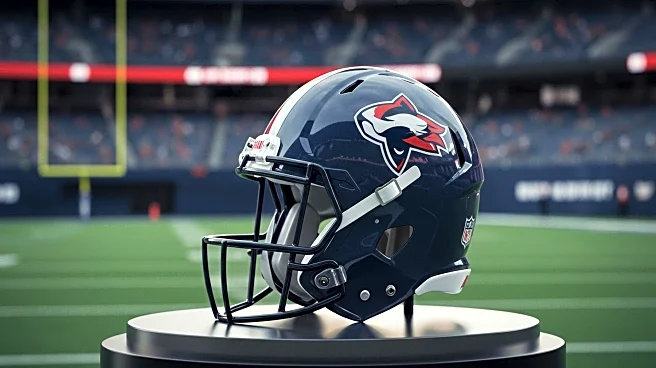What's Happening?
Mitch Trubisky, currently serving as the backup quarterback for the Buffalo Bills, has had a varied career in the NFL. Initially drafted as the No. 2 overall pick by the Chicago Bears in 2017, Trubisky showed promise early in his career. He earned Pro Bowl honors in his second season with the Bears, leading the team to a 12-4 record. However, his performance declined in subsequent seasons, leading to his release. Trubisky then signed with the Buffalo Bills in 2021, serving as a backup to Josh Allen. After a brief stint with the Pittsburgh Steelers, Trubisky returned to the Bills in 2024, where he continues to play a supporting role.
Why It's Important?
Trubisky's career trajectory highlights the challenges faced by young quarterbacks in the NFL. Despite early success, maintaining performance levels can be difficult, impacting team dynamics and player careers. For the Bills, having a seasoned backup like Trubisky provides depth and experience behind star quarterback Josh Allen. This is crucial for the team's strategy, especially in high-stakes games where injuries or tactical changes may necessitate a reliable second option. Trubisky's journey also underscores the importance of adaptability and resilience in professional sports.
What's Next?
Trubisky's future with the Bills will likely depend on his performance in upcoming seasons and the team's needs. As he continues to serve as a backup, his role may evolve based on team strategy and Allen's health. The Bills may also consider extending his contract or exploring other options depending on his contributions during games. Trubisky's experience could be valuable in mentoring younger players and providing stability in the quarterback position.
Beyond the Headlines
Trubisky's career reflects broader themes in sports, such as the pressure on high draft picks and the volatility of professional athletic careers. His journey from a top draft pick to a backup role illustrates the unpredictable nature of sports careers and the importance of perseverance. Additionally, his experiences with multiple teams highlight the business aspects of the NFL, where player trades and contracts are influenced by performance metrics and team strategies.








